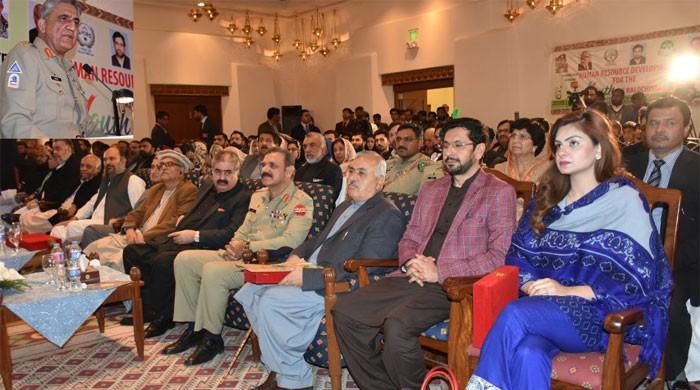Click and download
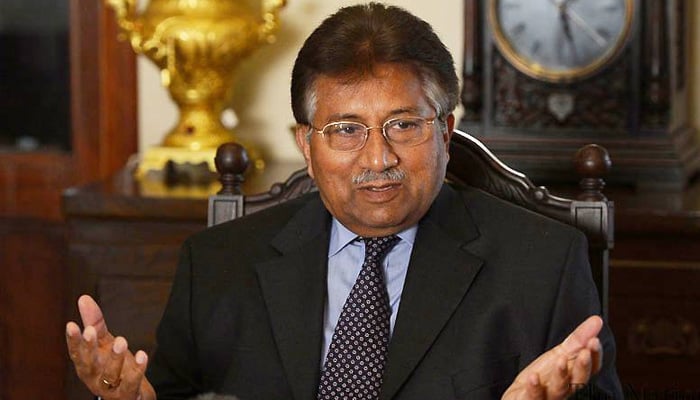
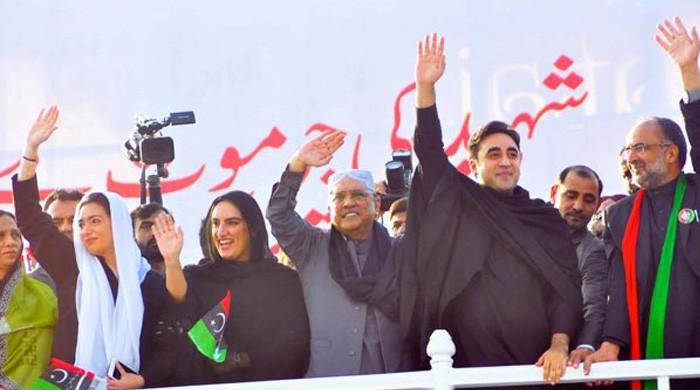
Pakistan allowed the wife and mother to visit him eight months after he was sentenced to death by a military court. Kulbhushan Jadhav, a former officer in the Indian Navy, was arrested in March 2016 in Balochistan. The case added to tensions between Pakistan and India.
Pakistan released a picture of Jadhav’s mother, Avanti, and wife, Chetankul, seated at a desk and speaking to him from behind a glass window. The mother and wife of Commander Jadhav were sitting comfortably in the Ministry of Foreign Affairs Pakistan.
“We honour our commitments," Foreign Office Spokesman Dr Muhammad Faisal said in an earlier Twitter posting when the women first arrived at the ministry in Islamabad. India’s Ministry for External Affairs office has not responded to a request for comment on the meeting.
After Jadhav was sentenced to death in April, India asked the World Court for an injunction to bar the execution, arguing that he was denied diplomatic assistance during what it says was an unfair trial.
The World Court ordered Pakistan in May to delay Jadhav’s execution, and said Islamabad had violated a treaty guaranteeing diplomatic assistance to foreigners accused of crimes. Pakistan authorities say Jadhav confessed to being ordered by India’s intelligence service to conduct espionage and sabotage in Balochistan "to destabilise and wage war against Pakistan".
In a transcript released by Pakistan of Jadhav’s confession, the former naval officer says disrupting the Chinese-funded projects was the main goal of his activities. Meanwhile, when Pakistan showed a goodwill gesture by arranging a meeting of Kulbhushan Jadhev with his mother and wife, Indian armed forces resorted to unprovoked firing across the Line of Control (loC) and three Army soldiers were martyred in the latest incident.
The Indian forces opened fire along the Line of Control, said a statement by the Inter-Services Public Relations. The incident of firing occurred in the Rakhchikri sector of the LoC. One other soldier was injured in the unprovoked incident of firing by Indian troops.
Incidents of firing from across the border have increased after the right-wing government of Narendra Modi came to power and caused significant material and human loss. Indian forces have used medium and heavy weapons in recent times to target the civilian population of AJK and army posts built along the LoC.
Pakistan's top civilian and military leadership has expressed serious concerns over repeated violations by India of the ceasefire agreement along the LoC. Earlier, Foreign Office Spokesperson Dr Muhammad Faisal said that convicted Indian spy Kulbhushan Jadhav is the face of Indian terrorism in Pakistan.
Faisal, during a press conference, reiterated that Jadhav is a terrorist spy and a saboteur who was caught red-handed and was conducting terror attacks in Balochistan and Karachi Meanwhile, Kubhushan Yadhav thanked Pakistan for his meeting with his mother and wife and he again confessed that he was a spy and working for the Indian secret intelligence agency.
In his video message, he confessed, “My name is Kubhushan Yadhav and my India Navy ID is 41558. I entered Pakistan two years ago by crossing the Iran border while working for the Indian intelligence agency. Later I had been arrested by the Pakistani security forces in Balochistan."
He also admitted that the Pakistani officials' conduct with him was professional and respectable as when he requested to a meeting with his wife and mother, they arranged the meeting. “I was informed that my mother and wife are coming to meet me. It is a happy moment in my life,” he said in his video message.
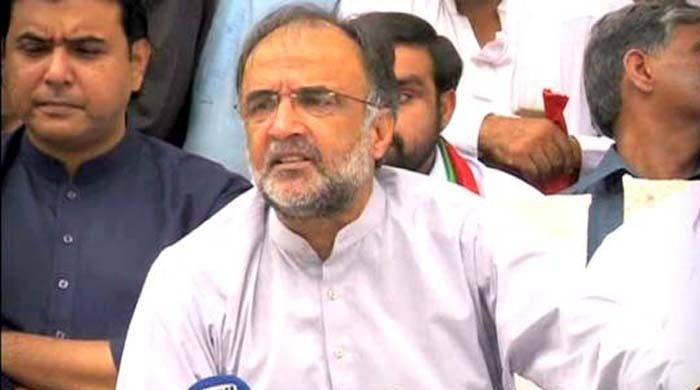
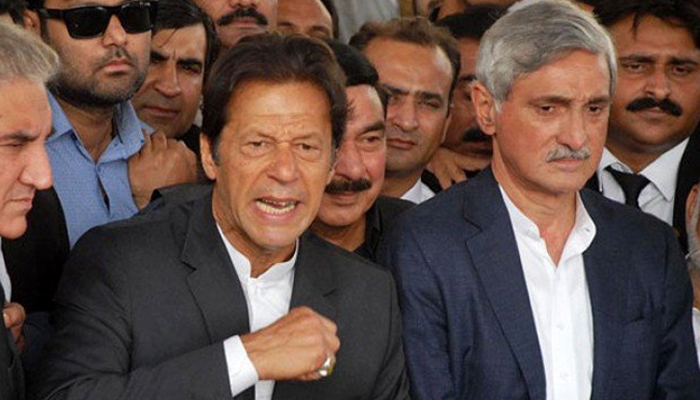
CONTROVERSY The News
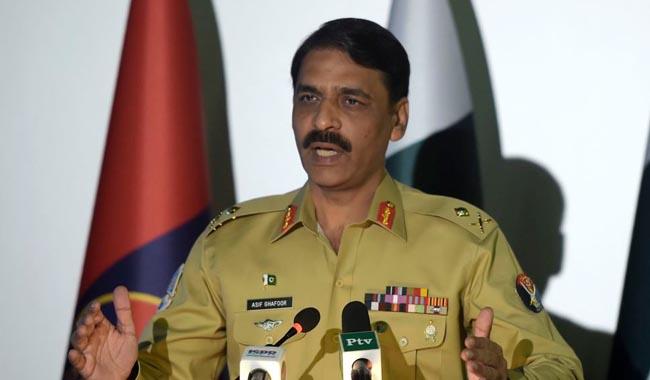
The army said civil and military are not separate and difference of opinion should not be construed as problems in the civil-military relations. “We are united as Pakistanis and civil and military are not two separate sides,” Director General Inter-Services Public Relations (ISPR) Major General Asif Ghafoor said while addressing a press conference in Rawalpindi.
“I belong to military and you are civilian. Whether there is anything wrong in our relations,” he questioned. "We are united as Pakistanis and are on the same page,” he said, adding that the enemy wanted to divide the nation.
The DG ISPR said the Pakistan Army had received support from the civilian government in creation of new wings of the FC and in many other security matters as well through financing.
To a question about giving NRO (National Reconciliation Ordinance) to the PPP and PML-N, he said it was a political matter and the army does not approve any NRO. When he was asked whether the NRO prepared for the PPP and PML-N leaderships had been sent to the Pakistan Army, he said the army had nothing to do with politics.
To a question about the statement of former interior minister Chaudhry Nisar Ali Khan, the army spokesman said it was the prerogative of the federal government to make the News Leaks report public. “The prime minister has ordered an inquiry into News Leaks and it is also the prerogative of the government to make the report public,” he said.
About the statement of former military ruler Pervez Musharraf that Pakistan always made progress when there is the military rule, Asif Ghafoor said Musharraf gives statements as head of a political party. “General Musharraf spent four decades in the army and he also gives statements due to his experience. But whenever, he gives political statement, it is given as the head of a political party,” he said, adding that the incumbentarmy chief implements the army’s policy. “Army does not support or own any political statement,” he said.
When asked to comment on the US policy for South Asia to be announced by President Donald Trump on Tuesday, the DG ISPR said Pakistan is a sovereign state and it would take decisions according to its own national interest. “Let the policy come and the Foreign Office will comment on it,” he said.
He said that during the recent visits and meetings of US officials with the army chief, it was made clear to them that presently there was no organised network of terrorists in Pakistan and actions had been taken against all terrorist organisations without any discrimination. “It has been made it clear to them actions have been taken against all groups of terrorists, including the Haqqani Network,” he said, adding that Pakistan is the only country which strongly and effectively fought against terrorism in the country. However, he said that declaring a Kashmiri leader as a terrorist was regrettable, adding that India has been trying to give the colour of terrorism to indigenous struggle of Kashmiri people.
Asif Ghafoor said Pakistan had contributed a lot to peace and security of the region but there is also global politics while India was also using its influence against Pakistan. He rejected the Indian allegation that Pakistan had hoisted the national flag, the highest in South Asia, on the Wagah border on eve of the Independence Day, for intelligence gathering. “Our intelligence agencies are capable enough to carry out their work without such tactics,” he said.
Emphasising the significance of reforms in Fata, he said the Pakistan Army had already conveyed its recommendations on reforms with security point of view to the government. “The people residing in Fata also have rights like other Pakistanis,” he said. He told media persons that 95 percent of the IDPs have returned to their homes in tribal areas and the remaining perhaps have settled where they had moved. “This is also a big indicator of our success with regard to restoration of peace in Fata,” he said.
Regarding the development activities in Fata, he said 550 development projects have been completed there, including 266 water supply projects, 147 schools, 27 mosques and 67 markets.
The DG ISPR revealed that the attack on Taleemul Quran Mosque in Rawalpindi on 10th of Muharram, 2013 was not carried out by Shias as an impression was being given to create a sectarian divide. He said the attack was carried out by eight terrorists clad in black dressing who belonged to the same sect of the mosque to create sectarian fault-lines. He said the terrorist group hails from the TTP having links with RAW and NDS of Afghanistan and also with arrested Indian spy Kulbhushan Jhadav.
On the occasion, recording of two terrorists from Bajaur nabbed in connection with the attack on mosque was also played. “We arrived at the site of the mosque in rickshaw before arrival of Muharram procession as per directives of our handler,” they said.
Talking about the terror attack near the Arfa Karim Tower in Lahore, he said the terrorists wanted to target Punjab Chief Minister Shahbaz Sharif but on failure they attacked police personnel.
The DG ISPR also announced the successful completion of Khyber-4 operation during which 253 kilometres of area located in the most difficult terrain of Fata was cleared of terrorists. “Today, we have completed the Khyber-4 operation which was started on July 15, clearing all ground targets in two pockets of Shawal Valley and Rajgal area while sanitisation of the area is in progress,” Asif Ghafoor said.
The army spokesman pointed out that it was the most difficult operation in the war against terror which was carried in an effective way minimising the loss of lives of troops as per directives of the army chief. “Our two Jawans were martyred and 21 injured while 52 terrorists were killed during the operation,” General Ghafoor said.
He said the clearance operation was still continuing in the Khyber Valley, adding that 91 check posts had been set up in the Rajgal area. He said the security forces had seized a material being used in manufacturing improvised explosive devices (IEDs) which bears a label of "Made in India". He said hundreds of landmines had been defused during the Operation Khyber-4, for which the Pakistan Army had consulted with the Afghan security forces and also sought their cooperation.
Asif Ghafoor said 24,000 operations had so far been conducted across the country. Of them, he said, 3,300 were carried out under Operation Raddul Fasad. In Punjab, he said, 1,728 intelligence-based operations had been conducted.
The DG ISPR denied the presence of any terrorist network in the country, saying presently there was no organised network of terrorists across the country. However, he told a questioner that 100 percent normalcy could not be achieved and questioned which country of the world had an ideal situation. “There are proxy wars and terrorist attacks taking place in the world,” he said.
Replying to a question about the fate of ex-TTP spokesman Ehsanullah Ehsan, the DG ISPR said he was a high value target because 3,000 to 4,000 suicide bombers were working under him and he also revealed links of Taliban with RAW. “Ehsanullah has a hand in the bloodshed of innocent people of Pakistan and he would not be pardoned,” he said.
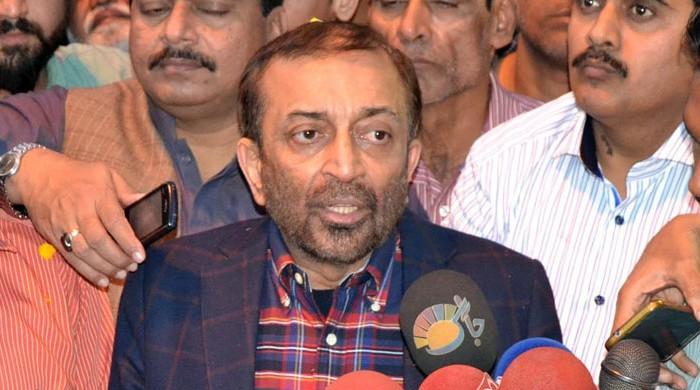
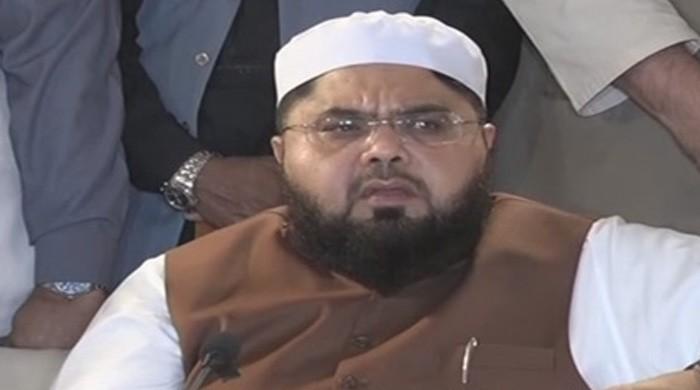
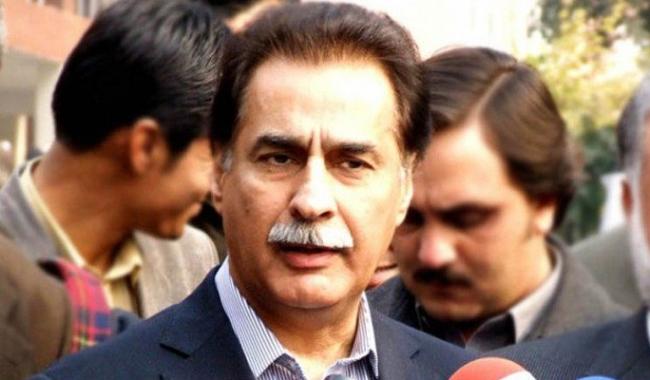
ISLAMABAD: National Assembly Speaker Ayaz Sadiq on Wednesday feared that the assemblies might not complete their term, adding he was seeing a ‘greater plan’ in the offing.
Speaking on Geo News show “Aj Shahzeb Khanzada Kay Sath”, the Speaker said that all the opposition parties except one intend to see the government complete its tenure.“Disappointment is a sin but for the first time in my political career, I am now disheartened,” Sadiq added.
He said that whatever was happening was not only damaging for one institution but for the entire country. The prevailing situation is not normal but unnatural. Pakistan is surrounded by enemies, the speaker maintained.
Sadiq said uncertainty was looming and has been fuelled by instances such as the delimitation bill not being passed. He expressed concern over the delimitation bill not being passed and said the smaller provinces of the country will take the issue to the court.
He added that if Punjab was ready to reduce the number of its seats for the benefit of smaller provinces, the provinces will inquire and go to court as the provinces are in agreement. However, Sadiq said, the Election Commission of Pakistan has asked for time to go through the process. “Chances are that people will start resorting to the option of [demanding] resignations.”
The delimitation of constituencies was decided in line with the provisional results of the latest census. The bill has already been adopted by the National Assembly, but the government has so far failed to get it approved by the Senate, despite repeated attempts.
The speaker said this was the first time he had felt hopeless towards politics. Talking about the Faizabad sit-in and Model Town turmoil, Sadiq said the government could not do much as it was feared that even the slightest use of force would wreak havoc.
“I was not this upset even in 2002 during Musharraf’s tenure as I’m now,” he said. “It is not necessary that martial law disrupts the system, but Pakistan has been vulnerable in the past.” Our internal challenges are bigger than external, Sadiq said.
“I always ask the political parties that the system should be strengthened for overall improvement in the country,” he said. "I pray for the stability of Pakistan as our country is everything for us," the speaker said. "We and our future generations have to live in this country. We are creating hurdles in the way of our future generations," he said asking whether it was right.
Meanwhile talking to another private TV channel, Speaker Ayaz Sadiq said, “What is happening now has never been witnessed before. “I am not an astrologer…I hope it [the National Assembly] completes its constitutional term but I don’t foresee it happening,” he told the host. “I feel something is about to happen… things are drastically different from 2002 and 2008.”
Ayaz Sadiq went on to say that continuity of the democratic system is pivotal for strengthening institutions in the country. “Everyone should give preference to national interests rather on focusing on personal benefits,” he added.
Praising the Bilawal Bhutto-led party, Sadiq said that the Pakistan People's Party is a mature political party, and it always wants that the system should not be derailed. To a question, the speaker wished that the deadlock on the bill on delimitation of constituencies should end so that the next general election could be held on time. “People of the country are the real judge and they will have to review the performance of the PML-N government in the next general elections,” he said.

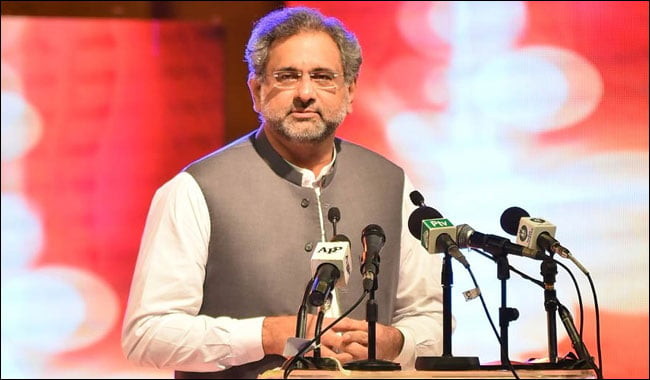
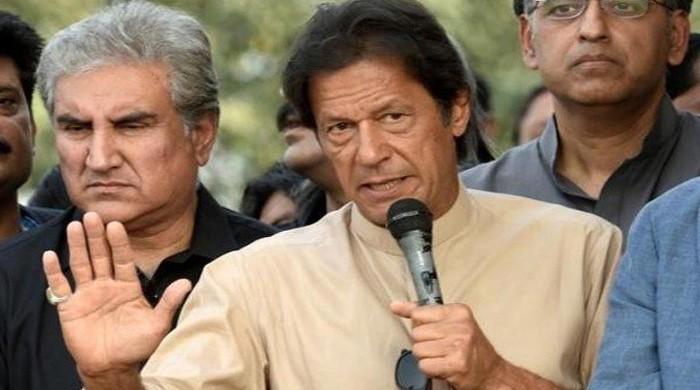

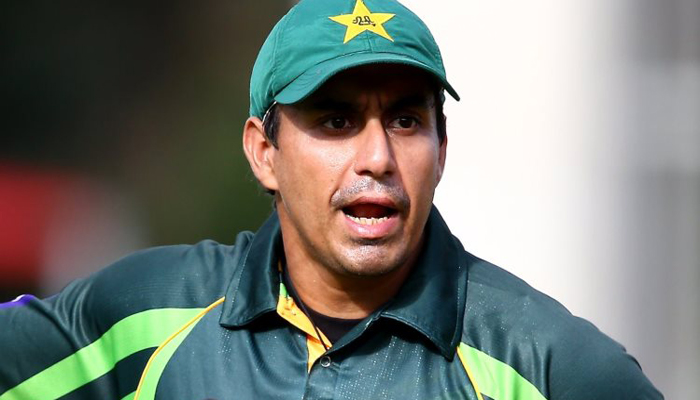
Sharjeel Khan was the first cricketer in the spot-fixing case, who was banned for five years last month.
In September, the Anti Corruption Unit handed batsman Khalid Latif a five-year ban and Rs1 million fine for involvement in the spot-fixing case.
He was charged on six counts, including persuading or attempting to persuade three other cricketers — Mohammad Irfan, Shahzaib Hasan and Sharjeel Khan to get involved in spot-fixing.
CONTROVERSY The News
CONTROVERSY The News
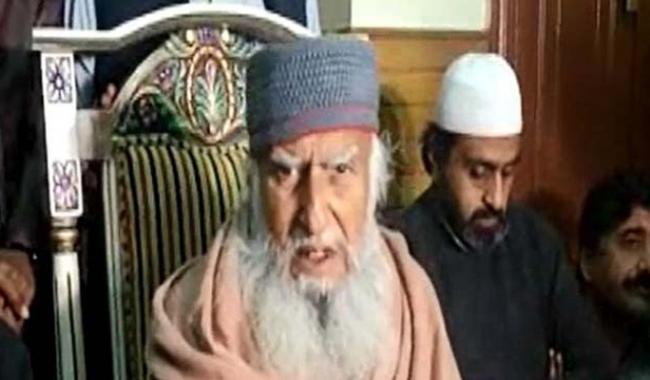
FAISALABAD: Five parliamentarians and 50 union council chairmen belonging to the Pakistan Muslim League-Nawaz (PML-N) on Sunday submitted their resignations to Pir Hameeduddin Sialvi, a spiritual leader and custodian of the Sial Sharif shrine.
Sahibzada Hamid Raza, Chairman of Sunni Ittehad Council, addressing the Khatm-e-Nabuwwat conference, held at the Iqbal Park here, said that Pir Sialvi would decide the political future of these parliamentarians and UC chairmen. The MPs submitting resignations include Dr Nisar Ahmad, MNA from Faisalabad;
Ghulam Bibi Bharwna, MNA from Jhang, Nizamuddin Sialvi, MPA from Sargodha; and MPA Mohammad Khan Baloch (PP-81).
These parliamentarians said they would not backtrack on their decision to sacrifice the assembly seats for the sake of sanctity of Khatm-e-Nabuwwat (PBUH). The one-point demand of the two members of the National Assembly and three members of the Punjab Assembly is the resignation of Punjab Law Minister Rana Sanaullah.
The son of MPA Maulana Muhammad Rehmat Ullah (PP-74), Qamarul Haq, announced the decision to 'sacrifice the provincial assembly seat' on behalf of his father.
During the conference, MPA Ghulam Nizamuddin Sialvi said he was willing to sacrifice thousands of 'seats' for Khatm-e-Nabuwwat (PBUH).
Hamid Raza also demanded the resignation of Punjab Law Minister Rana Sanaullah, warning that they would demand resignations of the Punjab and federal governments en-bloc if the Punjab law minister did not tender his resignation.
Later on, Pir Hameeduddin Sialvi, addressing the conference, appealed to the government to introduce Nizam-e-Mustafa in the country “to weed out social evils and ensure parity and equality”
He said he was not there to say something on political affairs, but to seek implementation of Nizam-e-Mustafa, because only through this system, the lives of Muslims of Pakistan could be changed.
Continuing, Pir Sialvi said that at the time of creation of Pakistan, the Muslim leaders had promised to implement Nizam-e-Mustafa in the country. But the rulers deviated from this pledge later on, he added.
Mufti Ashraf Asif Jalali, Chairman Tehreek-e-Labbaik Pakistan, in his address demanded immediate resignation of Rana Sanaullah; otherwise, he warned, the next sit-in would be held in Lahore on January 4, 2018.
Former Punjab chief minister Dost Mohammad Khosa also spoke on the occasion. He said the resignations of federal and Punjab law ministers were not enough, and the government should find out all the persons who played a role in altering the affidavit of the elected representatives.
The Iqbal Park was filled to its capacity and even a large number of workers listened to the speeches of speakers while standing on roads in the proximity.
Strict security arrangements were made by the local administration by posting 650 policemen and 200 wardens at the venue of the conference.
Tehreek-e-Labbaik central leader Allama Farooqul Hassan, Amjad Ali Waraich, President National Muslim League, Pir Ghulam Hussain from Hafizabad also spoke on the occasion.
Syed Muhammad Zameer adds from Hafizabad: Speakers at Khatm-e-Nabuwwat conference, held here Sunday, pledged to safeguard the Khatm-e-Nabuwwat laws. The speakers included Pir Syed Ijaz Ahmad Hashmi, central president and general secretary, JUP-N, Muhammad Awais Noorani, MPA Pir Mehfooz Ahmad Mashahadi of Bhikki Sharif and others.
They said they would not forget the supreme sacrifices offered for the protection of Namoos-e-Risalat and declared that the Muslims of Pakistan would foil any conspiracies to change the law regarding Khatm-e-Nabuwwat (PBUH).
They said that anti-Islam forces were hatching conspiracies to shatter the unity of the Muslim Ummah and abolish the Khatm-e-Nabuwat laws. But the lovers of Holy Prophet Hazrat Muhammad (PBUH) would foil their attempts. They called upon the Muslims to transform their lives truly in accordance with the teachings of Holy Quran and Sunnah.
Maulana Muhammad Ismail Shujabadi, central leader of Aalmi Majlis-e-Tahaffuz-e-Khatm-e-Nabuwwat, and Allama Zahid-ur-Rashdi also addressed the conference, held at Madrasa Ashrafia Qurania, Hafizabad, and called upon the Muslims to prepare themselves to protect the Namoos-e-Risaalat and Khatm-e-Nabuwwat laws.
CONTROVERSY The News
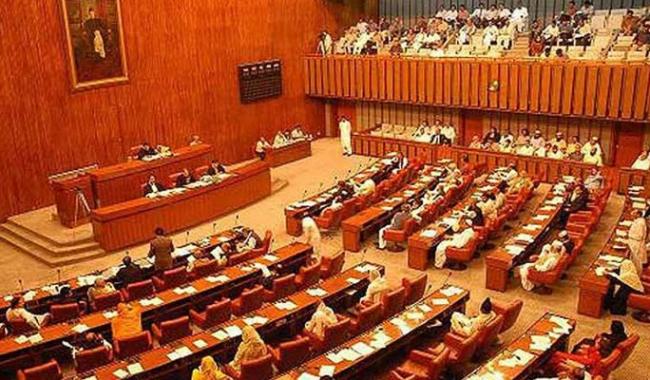
ISLAMABAD: The ruling PML-N’s backdoor contacts with the PPP have finally delivered, as the latter has decided to help the bill for new delimitation of constituencies sail through the 104-member Senate where the government lacks majority. The Constitutional Amendment Bill, 2017 pertains to the fresh delimitation of constituencies in line with the provisional results of the latest census in the light of general elections next year. The National Assembly had adopted the bill; however, the government has so far failed to get it approved by the Senate despite repeated attempts. On November 17, voting on the bill was postponed as the required number of lawmakers were not present in the Senate. The bill needed a two-thirds majority for passage but there were less than 50 lawmakers in the House. After strenuous lobbying by the ruling PML-N parliamentary leadership, Opposition Leader in the National Assembly Syed Khursheed Shah acceded to the proposal to pass the bill, enabling the ECP to undertake the task of delimitation of the National Assembly seats according to provisional census results without enhancing the total number of seats. Khursheed Shah had assured the treasury after the adjournment of the previous Senate session and the meeting of Council of Common Interests that path for the delimitation bill had been cleared and it will get through by December 11 — the latest deadline given by the ECP. It may be recalled that the ECP had twice revised its demand that parliament should adopt the bill or it would move the apex court for permission to hold the upcoming polls on the basis of 1998 census. Sources said the government had agreed to the PPP's demand that it would hold only one election based on new delimitation. The Senate is likely to adopt the bill in its session due to start from Monday (tomorrow). According to the new delimitation of constituencies, Punjab's seats share in the National Assembly will decrease by nine seats, while Islamabad will get one more seat, Khyber Pakhtunkhwa five and Balochistan three more. Seats for Fata and Sindh will however remain unchanged. A senior PPP leader confided to The News that most of party leaders, including Chairman Bilawal Bhutto Zardari, wanted to vote for the amendment, but the Co-chairperson Asif Ali Zardari had advised them against doing it. A PPP senator told The News that a list of eight major demands relating to the population census results’ re-checking had been presented to the government, which was accepted. “Now we are ready to get the said amendment approved from the Senate,” he said. The ruling PML-N doesn’t have the required two-thirds majority in the 104-member Senate to get the bill passed. In this scenario, the N-League needs the opposition parties’ support for approval of the amendment. Giving details of demands, the senator said the PPP’s narrative of post-census enumeration was very justified. The PPP demanded that a Census Verification Commission consisting of three recognised demographers should be appointed with mutual consultation for three months to submit its final report after rechecking results. The party further demanded the Pakistan Bureau of Statistics should not have any role in the commission and the census block to be included in the Post Census Enumeration (PSE) should be selected on random sampling programme by computer on district level. He said the condition of showing Nadra identification also excluded those having no identity cards. The senator said the PES should be conducted in randomly selected blocks on de-facto method, which counts every resident who was in a place of residence the previous night. And as per international practice, curfew should be imposed in the selected blocks for a day to carry out the Post Enumeration Survey in a professional manner. The army should not be involved with enumeration as was done in the Census 2017, he concluded. Giving technical details, he said enumeration should be done on templates and the data transmitted on line after counting each house to the office of the commission and the provincial government. To make it authentic, the UN Population Fund can also be given consultancy services to give technical inputs for the Census Commission to carry out the PES in an internationally-recognised manner. Talking to this correspondent, Senator Salim Mandviwala, who’s very close to Asif Ali Zardari, said the PPP had yet to take any decision to vote on this important amendment. “We are discussing the issue with other parties in the Senate. The senators of different parties have reservations about this amendment approved by the NA, and we are trying to remove them," he said. PTI Senator Mohsin Aziz denied any such consultation, as his party had not been approached by the PPP nor had his party shown any reservations about this important amendment passed by the NA. He further said his party wanted to approve the amendment as soon as possible so that a hurdle in its way could be removed. The National Assembly passed the 24th Constitution Amendment Bill 2017 by 242-1 vote on November 16, paving way for the Election Commission of Pakistan (ECP) to carry out fresh delimitation of constituencies ahead of the next general elections on the basis of provisional census data. It is worth mentioning that the 24th Constitution Amendment demanded the audit of 5pc of census blocks. The issue of conducting fresh delimitation of constituencies had been stuck in deadlock for several days till the CCI agreed to hold the elections on the basis of provisional census results on the condition that a third-party audit of one per cent of population blocks would be conducted within three months.




